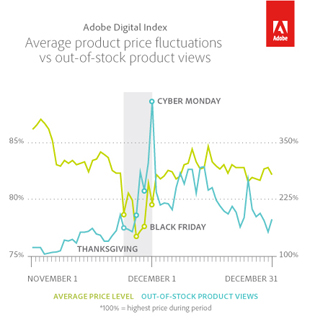Don't count on Black Friday for the best holiday deals
It used to be that Black Friday -- the day after Thanksgiving -- was a solid bet for finding the best deals on holiday gifts.
That rule of thumb doesn't necessarily hold true, especially for holiday shoppers this year. With more purchasing shifting to online retailers such as Amazon (AMZN), it's forcing brick-and-mortar retailers such as Walmart (WMT) to extend their "Black Friday" sales across the entire week of Thanksgiving. Other retailers are offering bargains on Thanksgiving itself.
This holiday season may end up providing better deals for consumers than in some past years, given that Thanksgiving falls on Nov. 27 this year, which is relatively late. That's shortening the traditional holiday buying season for retailers, which may give them an incentive to offer deeper discounts, with many of those appearing before Black Friday, said Deborah Fowler, associate professor at Texas Tech University, who studies retail management.
"It's the greying of Black Friday," Fowler noted. "A lot of retailers are offering sales and actually pretty good sales on Thanksgiving day."
Walmart, for instance, will start offering Black Friday prices on Nov. 21, and will match some holiday sales offers from competitors at the same time, the company said on Wednesday.
Consumers who want to track when the lowest holiday prices will be available can check sitessuch as BensBargains.com, which keeps tabs on retailers and their Black Friday deals. Shoppers looking for a pair of Beats Solo Drenched HD On-Ear Headphones are advised to buy from RadioShack starting at 8 a.m. on Thanksgiving, according to an analysis from that site.
For online shoppers, Thanksgiving Day itself takes home the pumpkin pie when it comes to finding bargains, according to Tamara Gaffney, principal analyst at Adobe Digital Index. The group's data analytics represents $7 out of every $10 spent online, she noted.
"What we find is the lowest overall price discount is on Thanksgiving Day, at about 24 percent," Gaffney said. "That was a surprise to use. We thought it would be Black Friday."
Even more surprising was that by the time "Cyber Monday" rolls around -- which is the online equivalent of Black Friday -- prices are back to pre-holiday levels, she said. Consumers are also more likely to come across out-of-stock messages when they shop on Cyber Monday, most likely because a wave of early shoppers have already hit the sites and snapped up inventory.
"Cyber Monday is one of the worst days to go shopping online," Gaffney said.
The average shopper will do 44 percent of their holiday shopping online this year, according to the National Retail Federation. That's the highest percentage recorded since the group began tracking that topic.
Online shopping may be even more popular this year, thanks to the bad reputation that Black Friday events have earned. Some American consumers may be put off by scenes of rowdy crowds trying to grab items off shelves. Only 28 percent of shoppers surveyed in a Bankrate.com study plan to actually shop in a store on Black Friday.
So what's the best strategy for getting the lowest prices? Shop online first, checking out prices on Thanksgiving, and then go to stores to search out bargains, Gaffney noted.
While Black Friday may offer incredible deals, the truth is that "the odds of scoring one without camping out at the store are pretty low," noted Kristin Cook, managing editor at BensBargains.com, in an email.
Some products might drop in price as Christmas approaches, with retailers eager to pull more shoppers into their stores. That holds true for toys, which Cook said hit their lowest prices in mid-December. For instance, some Lego sets might be 40 percent off on Black Friday, but shoppers might be able to find sets at 50 percent off in December, she noted.
